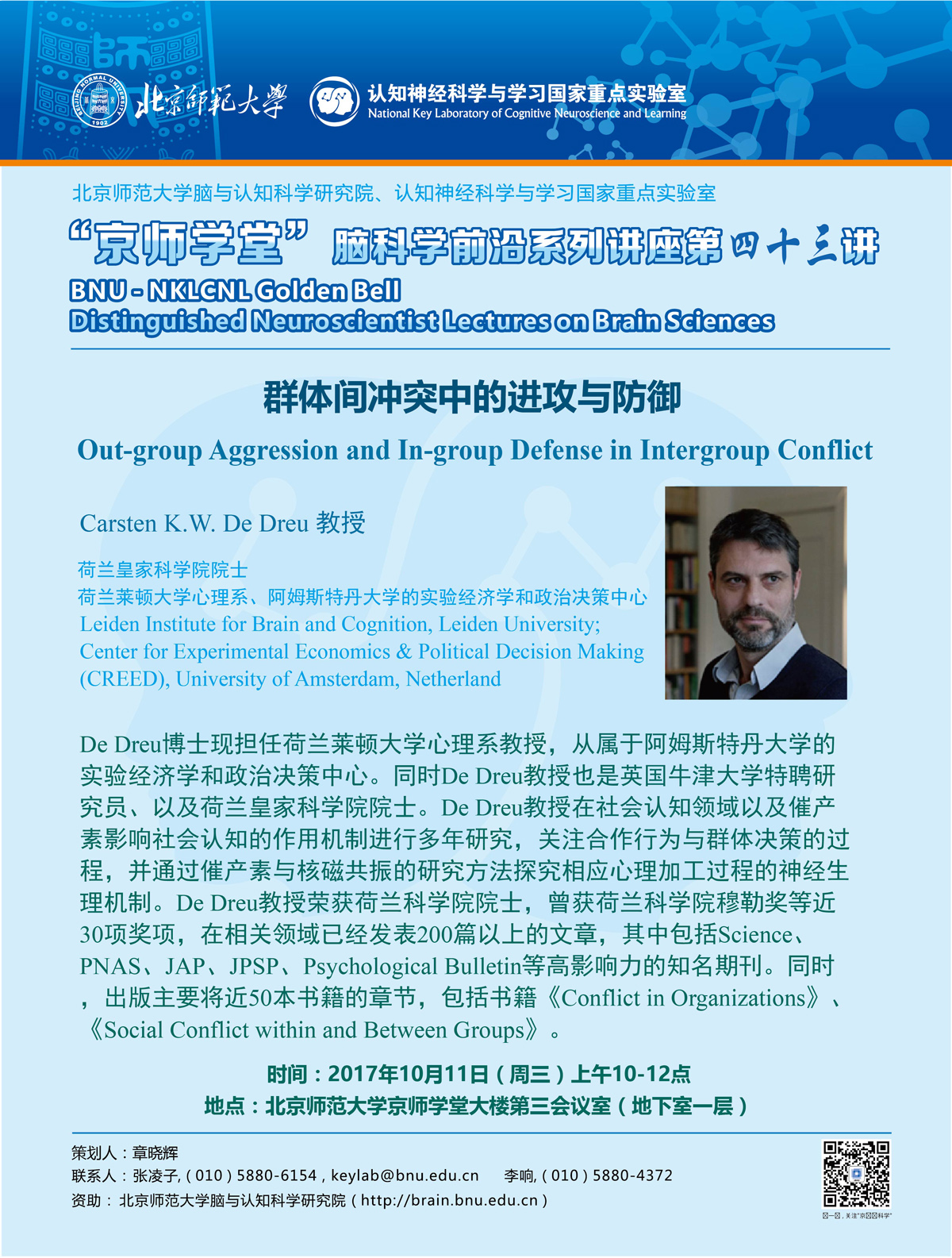群体间冲突中的进攻与防御
Out-group Aggression and In-group Defense in Intergroup Conflict
Carsten K.W. De Dreu 教授
荷兰皇家科学院院士
荷兰莱顿大学心理系、阿姆斯特丹大学的实验经济学和政治决策中心
Leiden Institute for Brain and Cognition, Leiden University; Center for Experimental Economics & Political Decision Making (CREED), University of Amsterdam, Netherland
De Dreu博士现担任荷兰莱顿大学心理系教授,从属于阿姆斯特丹大学的实验经济学和政治决策中心。同时De Dreu教授也是英国牛津大学特聘研究员、以及荷兰皇家科学院院士。De Dreu教授在社会认知领域以及催产素影响社会认知的作用机制进行多年研究,关注合作行为与群体决策的过程,并通过催产素与核磁共振的研究方法探究相应心理加工过程的神经生理机制。De Dreu教授荣获荷兰科学院院士,曾获荷兰科学院穆勒奖等近30项奖项,在相关领域已经发表200篇以上的文章,其中包括Science、PNAS、JAP、JPSP、Psychological Bulletin等高影响力的知名期刊。同时,出版主要将近50本书籍的章节,包括书籍《Conflict in Organizations》、《Social Conflict within and Between Groups》。
讲座摘要
Intergroup conflict and competition can motivate individuals to contribute to their group’s fighting capacity at a personal cost and at sometimes high risk. Sometimes, such self-sacrifice is motivated by the greedy desire to subordinate and exploit out-groups (out-group aggression) and, by implication, it is motivated also by the fear-based need to defend the in-group against the rival’s out-group aggression. Archival analyses of group-hunting animals, firms attempting hostile takeovers, and inter-state warfare all suggest that out-group aggression is typically less successful than in-group defense, suggesting that evolutionary and cultural pressures may have favored capacities for cooperation and coordination when the group goal is to defend, rather than to expand, dominate, and exploit. Here I examine this possibility in light of the results from experiments in which we engaged (groups of) individuals in predator-prey contests and tracked neural and neuroendocrine activity, behavioral investment in aggression and defense, and group-level coordination. Implications for regulating conflict and achieving world peace will be discussed, and avenues for future research will be highlighted.
时间:2017年10月11日 (周三)上午10-12点
地点:北京师范大学京师学堂大楼第三会议室(地下室一层)
